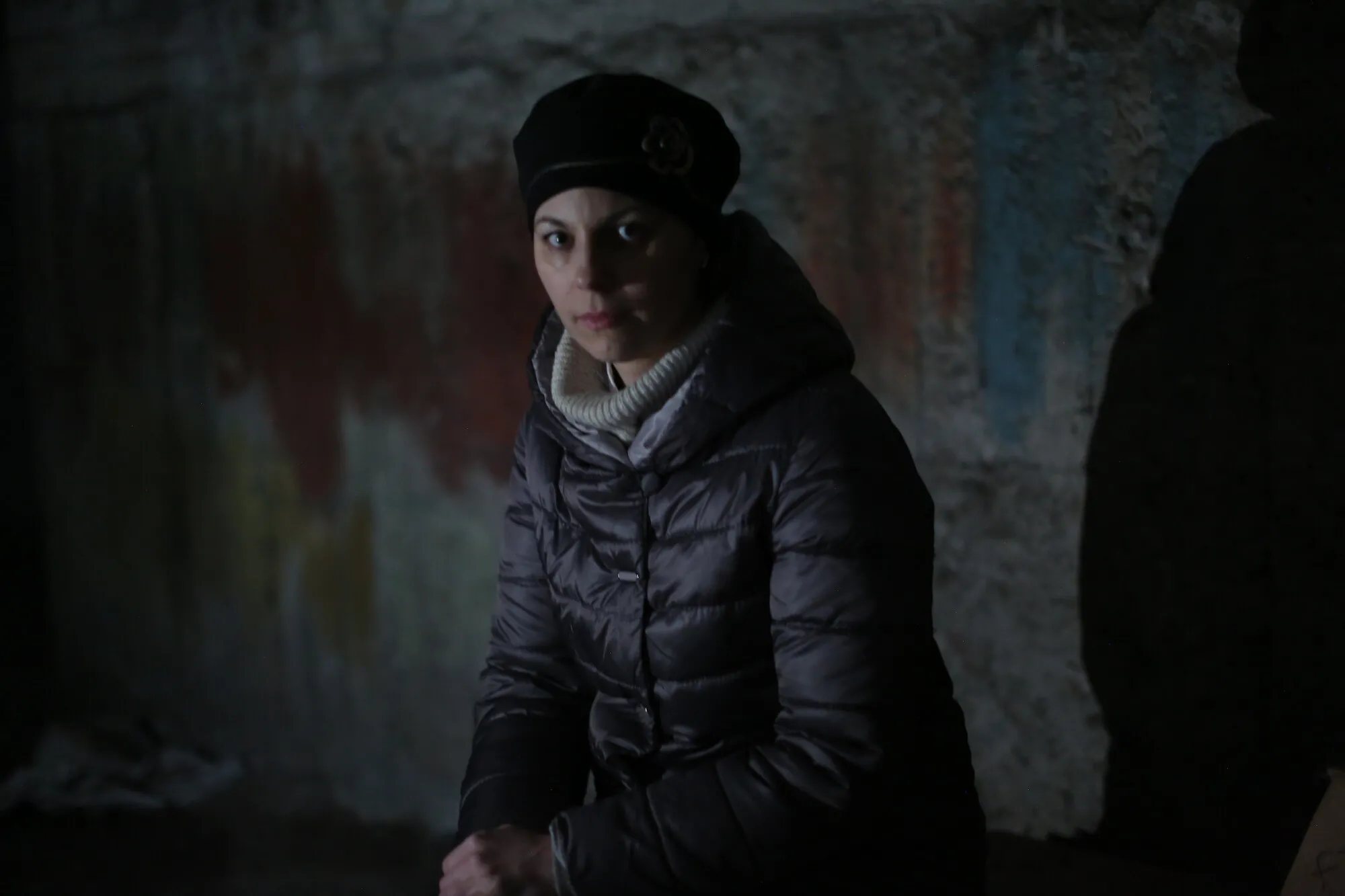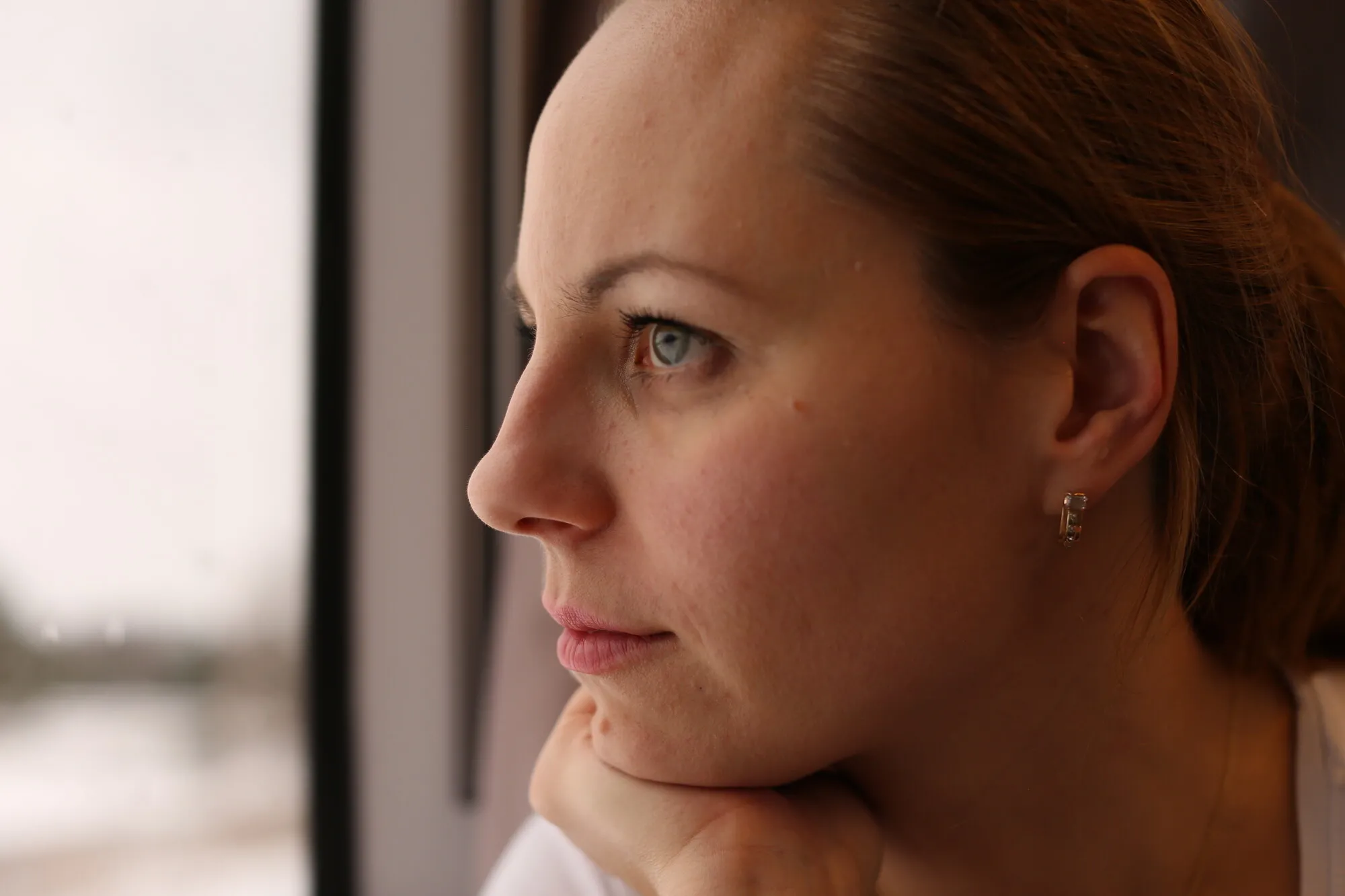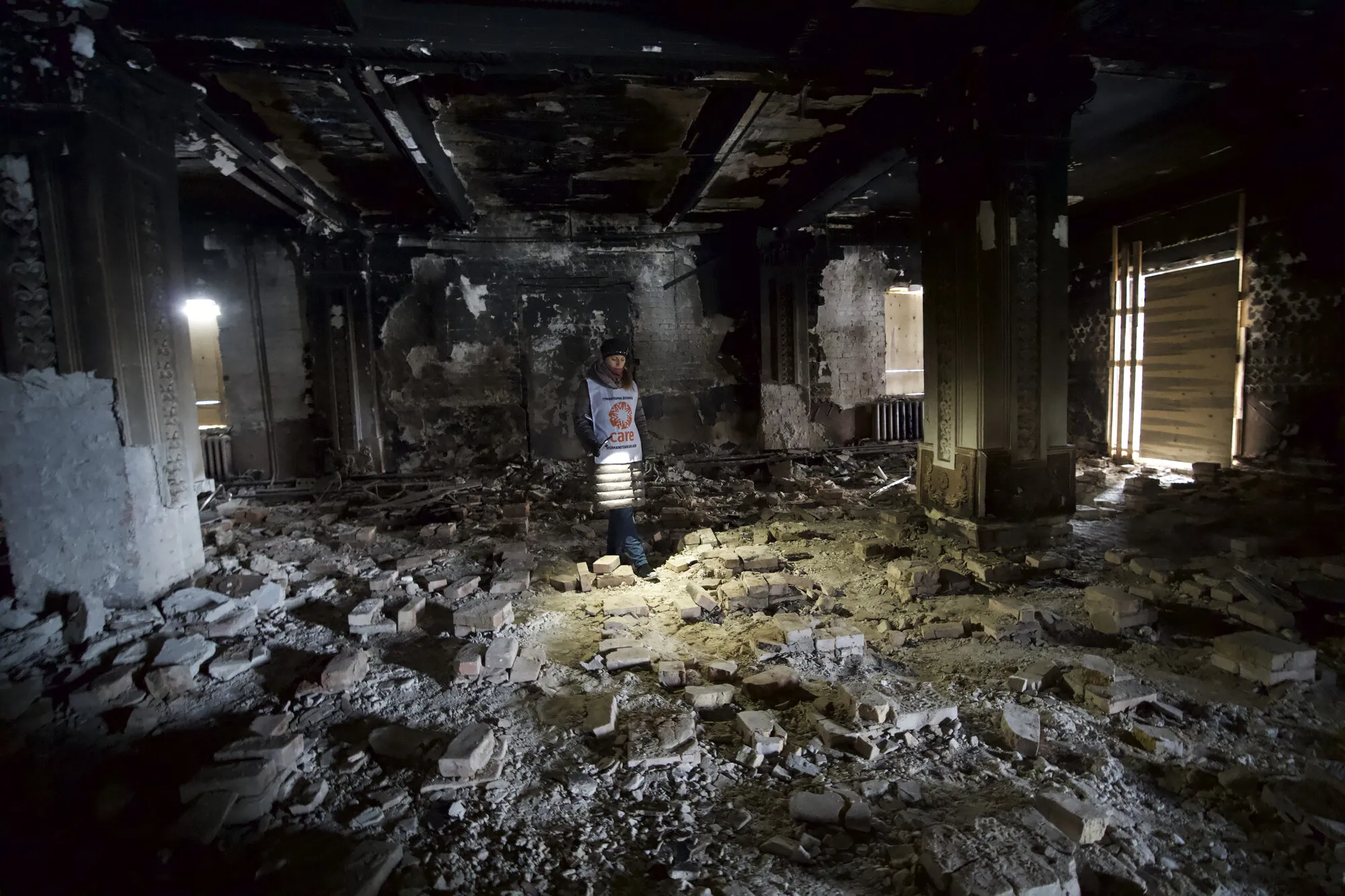We left Kyiv, and we decided to go to the closest border, the Moldova border.
We ended up in this town — a border town — and the line was so long, in went into the center of town. We were waiting for ten hours, in with all the other cars, and we were still waiting, and we were just hoping to cross the border and to be in a safe place.
As soon as we crossed the border, we had to think where we’d go next.
It was so strange. We were on the road, and we were discussing what country to go to, where to stay. We had no idea. We didn’t have relatives, no friends or family members who could host us in another country, so we were just driving and talking.
My mom said, “Maybe we should stay in Slovakia,” or, “Maybe we should go to Poland.”
It was really scary to be completely nowhere, not knowing what was happening next, not having a job, not having enough money to sustain ourselves.
Just driving.
We ended up in Romania. My mother has a heart issue, and, unfortunately, in Romania her health got worse. She had to be in the hospital for several days, and the hospital was in the mountains. There was no Internet, there was no Google Translate, the doctors didn’t speak English. We would just use sign language.
When you are in a foreign country and everything is okay, you can kind of handle the situation, but if something happens to your health, if something unexpectedly happens, and you need to explain it, that’s different.
It was at that moment, when I was talking to the doctors, I realized that we need to go to a country where I could speak the language.
So that was our choice. We would go to Poland.
“This is where we live”
I don’t see Kyiv as my home anymore, at least not at this moment. It is so unsafe. It is so dangerous there that just no matter how much I want to go back home, no matter how much I want to be in my apartment, it’s not the apartment I was in before. It is not the place it was.
So at this moment, Poland is our home. We don’t see it as temporary. This is where we live. This is where life is happening. I think what this past year has taught us not to make plans for the rest of life, because the plans might not happen. Just to live today and to enjoy the moments that are right now.
Of course, the biggest hope, my greatest hope is for the war to end.
This year, every time we celebrated a birthday — my birthday and my son’s birthday and Christmas — every time we would blow candles out, there was only one dream. Only one wish. For the war to end.
***
In February of 2023, one year after the war began, Daria returned home to Kyiv. CARE News will be posting more from her story in the coming weeks, but below is a short video documenting some of her time there.



